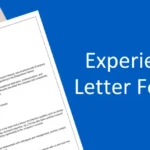Background checks are getting adopted by more and more companies. Every company wants to hire the best talent in the market. The recruitment process is all about checking if the candidate is right for the company. A huge part of their skillset and qualification is learned from the resume they submit to the company during the process.
Often, the company finds that the candidate lacks the significant amount of expertise that they require for the job. Often these are the skills and qualifications they bragged about in their CV and hence qualified for the position with the company. Recruitment is not just extensive but also expensive, and you can’t afford to hire the wrong candidates.
Realizing that you hired the wrong person in the position is a dual expense.
- There is a loss of productivity due to the underperformance
- You need to start hiring for the same position again from the scratch
That’s why organizations choose a background verification process for the promising candidate to ensure that recruiting them is a good decision.
What is Background Verification?
A background check or background verification process ensures the credentials, such as the qualification and experience of the candidate, are genuine. This includes various educational qualifications such as degrees and certificates, skills, work experience, address, and sometimes even the employee’s criminal records or credit score.
Different companies have different sets of criteria on which they conduct background checks. Police and private agencies can conduct the employee background verification process. Depending on the depth of information an employer is looking for, the process may take a couple of days to a couple of weeks. As mentioned before, there are various background verification processes, so let’s discuss them in detail.
Also Read:
Components of the Background Check
Organizations normally think about background checks before onboarding. But they often become confused about how deep they should know for further cross-checks. There are essential components of background verification processes depending on the type and information.
➔ Candidate Qualification
It is observed that candidates often lie on their resumes. Getting the wrong person can be a threat to the company’s privacy as well as its reputation. Checking the background history of the candidate thus becomes essential.
A general employee background verification process check may include educational qualifications and work experience. The verification can ensure that the candidate has the qualifications that company policies ask for a particular position.
The background check must be performed with the candidate’s consent. Background checks are easy to be seen as invasive to privacy in India. People may also consider it as proof of a lack of faith in the employer. Whether you are conducting a background check for their work history, education or reputation, the candidate needs to be informed about the same, even if it’s a routine process for recruits.
Notifying candidates about the verification keeps you on the right side of the legal formalities. Being transparent with your background verification process also improves your image as an employer in your mind.
➔ Criminal Records
The employee’s criminal record background checks are connected with bad notions. Conducting a check for the criminal record does not necessarily mean that you doubt their character. But there are a few responsibilities in the organization where you need to conduct the employee’s criminal records to ensure that they are right for the responsibility.
There are many types of crimes some you might let go, while in others, you need to ensure that the person is not a threat to the people, finances, or reputation of the company. Every record does not mean that the person is wrong for the company.
For example, a person with a criminal record of financial fraud cannot be hired for the job of head of finance. A person with a record of violent behaviour may not be a good fit where you have higher patience in direct communication with the customers in the service-entered business.
➔ Professional License
A background check is necessary when you are hiring a candidate with highly essential skills and credibilities, such as a doctor, accountant, or realtor.
A background check is a tool that can protect the company from claims of negligent hiring in case of future disputes. It is also not good for the organization to risk hiring candidates who are not qualified enough to carry the responsibilities of the professional position.
The verification of highly skilled professionals needs to be done with the help of an authorized organization. The national skills registry has the largest database of working professionals. National academic depository stores educational records of people in digital forms.
These government organizations are also a typical source of information for screening companies. That makes these organizations a reliable source to find out if they possess a valid license or if it’s already expired.
➔ Address Verification
The address verification process checks whether the candidate’s submitted details are genuine. The candidate’s address verification is essential for the organizations active in the financial sector to reduce the risks of financial frauds such as hacking accounts, money laundering, or theft of money.
If the employer checks the authenticity of a candidate’s address, it adds to the employee’s credibility. The residency of the candidate belonging to the address they submitted can be a good indicator of their credibility.
➔ Credit Score
The credit score is a background verification process that helps identify a person’s credit and debt ratio. It is a standard process for job roles in the finance industry where fraud and embezzlement are possible. This way a company can ensure that hiring a candidate is not a risk or liability for the firm. You also need to write permission from the employee to get their credit report.
If a company rejects a candidate during background screening based on their financial record, an explicit reason needs to be provided. You also have to provide the contact details of the firm that provided such details. It also ensures that the applicant won’t lose an opportunity due to mistakes or misinformation and can take corrective action before a hiring decision is made.
➔ Social Media
It is common for most people to update their lifestyle and life events on social media accounts consistently. This is the reason that makes it important to include it in the verification. The employer can check the social media accounts to verify if the applicant is suitable for the company. The employer does not need prior permission to check your social media as in India; currently, we have no such laws.
Many background checks are to be done for a candidate’s background verification process. It is important to check social media and verify if a candidate’s connections or lifestyle are suitable. Social media profiles of a candidate can give information about the things the employer wants to avoid. This is not very helpful for a criminal background check of the candidate’s past and can provide an employer with sufficient information about the applicant.
Why do you need to do a Background Check?
Every background verification is not the same. It has to be done according to the job requirements. For example, you need to check a driving license for people on field jobs such as sales and delivery, but the same is not necessary for office jobs.
➔ Examine Properly
A criminal record does not always mean that the person is guilty moreover, different criminal records may have nothing to do with a candidate’s character or competence at the job. That means just the presence of a criminal record does not justify rejecting an otherwise perfectly qualified candidate.
➔ Company Policy
Such decisions need concrete reasoning and have to be supported by company policy and values. More importantly, the candidate should not get rejected unfairly.
➔ Avoid Bad Hire
Irrespective of the size of the organization the background check is essential. No company can afford bad hires.
➔ Less Productivity
Moreover having the wrong team is likely to show an immediate impact in small and medium size companies than a firms with huge workforce. Sooner or later, the bad hires cost the company in the form of corrective actions.
How long should the Background verification process go on?
Most of the company take 4 to 5 days for the entire background check. Though many companies complete it in two sets. one is just before accepting the negotiation offer and the other is after joining.
Most companies these days do background checks in two sets. One set is carried out before you join or before extending the offer of employment (depending upon that company’s policy) and includes checks which can be completed well within 2 weeks. The second set of checks is initiated after you join them. Two sets are becoming a norm in industries because this way they are able to balance and mitigate risk exposure while keeping the cost of verification in control by carrying out a minimum set.
Employee Background Verification In India 2024
Employment background screening in India can be done much quicker than most people think is possible. There are government initiatives to ensure that the candidate’s background checks are done properly. The company can also hire a third-party background screening firm or do it themselves by contacting concerned organizations for all required information.
The candidates have complete control over the background checks and the employer can not carry out the process without their consent. The candidate has the right to get a copy of the background verification report. The employee owes an explanation if they decide not to hire the candidate. The applicant can also challenge the findings of a background check report and decisions based on it.
Also Read:
What issues can be Discovered in the Background Verification Process?
Various types of fraud can happen during the recruitment process and background verification protects a company from it. Some of the common malpractices used by applicants during the hiring process are listed below.
➔ Fake Identity
Candidates can produce a fake identity to show the necessary credential or to hide something from their past. In such cases, a personal background verification process validates the documents, such as address verification or driving license can protect your company from significant trouble.
➔ Hide Past Incidents
Sometimes an applicant may be trying to hide information that showcases them in an adverse light as they may have some serious criminal record. There is a possibility that the candidate was involved in something unethical during their student life or in their previous jobs and hid such information to ensure they didn’t lose the job opportunity. The company can find such information during the background check.
➔ Portraying Fake Credentials
The applicant may produce false claims and certificates to ensure that their qualifications are right for the job profile they are interviewing for. This can lead to hiring an employee whose present skill set, and job requirements have a significant gap. That mismatch of actual skills and needs of a job role can lead to a loss of productivity and brand reputation.
How Is A Background Check Different From A Reference Check?
The principal difference between a background verification and a reference check lies in the reason for checking. The organization does the background check to examine whether the candidate has any fraudulent activity in past work-life. It also checks the past commercial and financial records of a candidate.
In the case of reference checks, it is a process of finding genuine candidates through employee referrals. Often organizations follow the traditional method or use some digital reference tools. It saves the company time and money as it directly allows the applicants to submit reference requests online. And the employers look up the candidate directly to their contact.
Summary
A Background verification process is carried out to ensure that the candidate is right for the company. The verification can be done for education, qualification, address, professional licenses, etc.
The time taken in the verification depends on the type of information and the depth of the details that the employee seeks. Background verification can help employers prevent some significant threats to the safety and image of the firm. It also ensures quality hires, so you get the expected productivity for your company.









